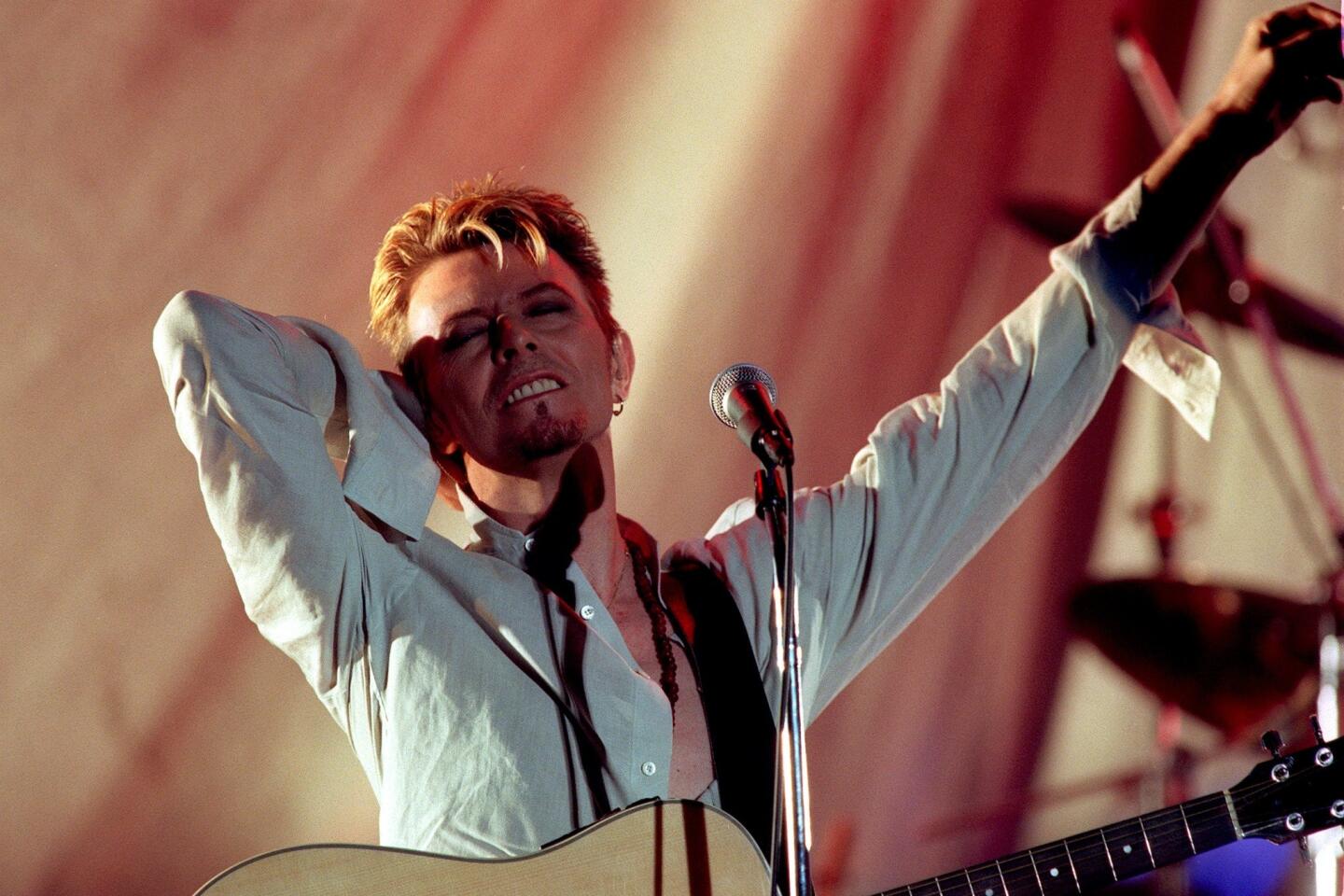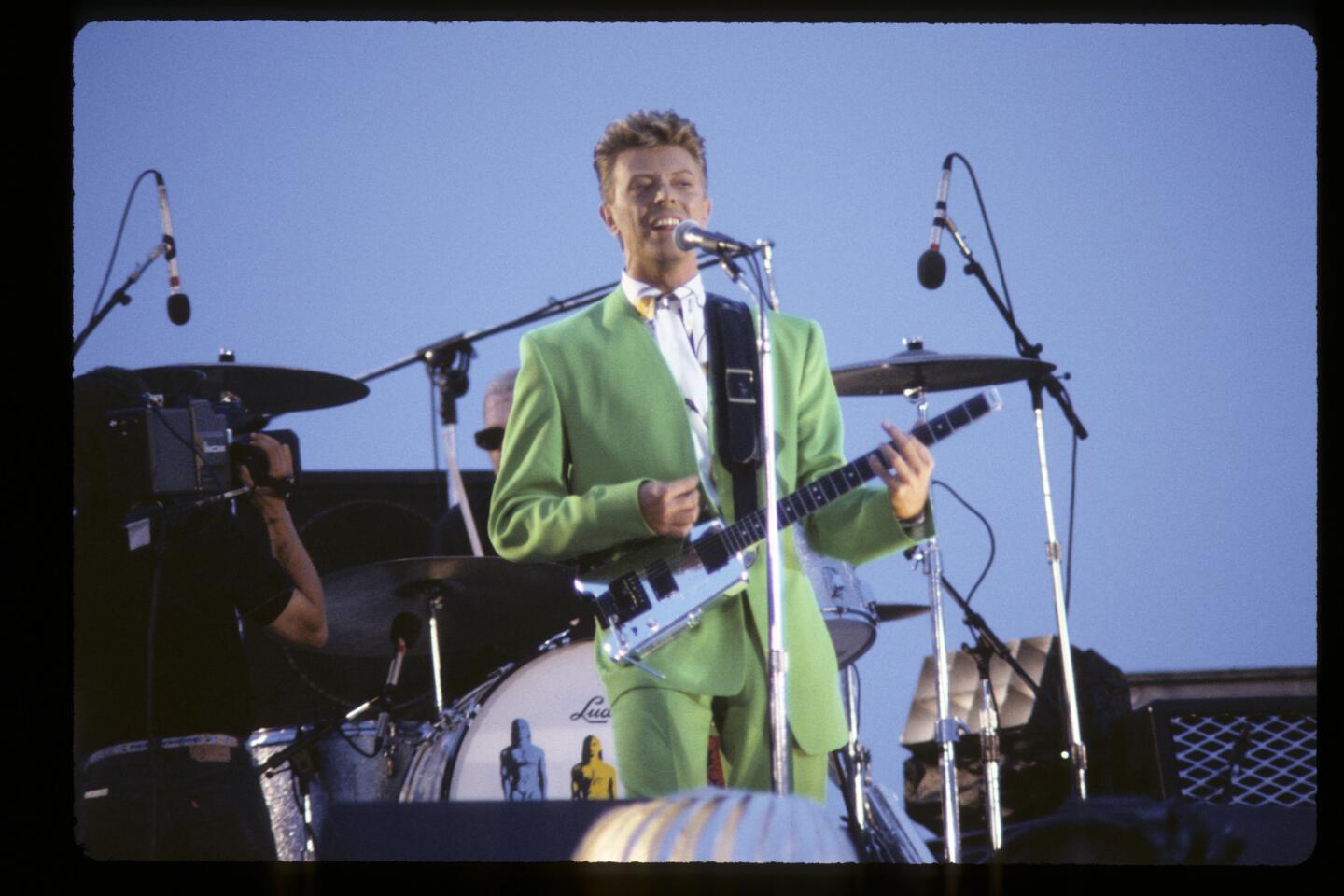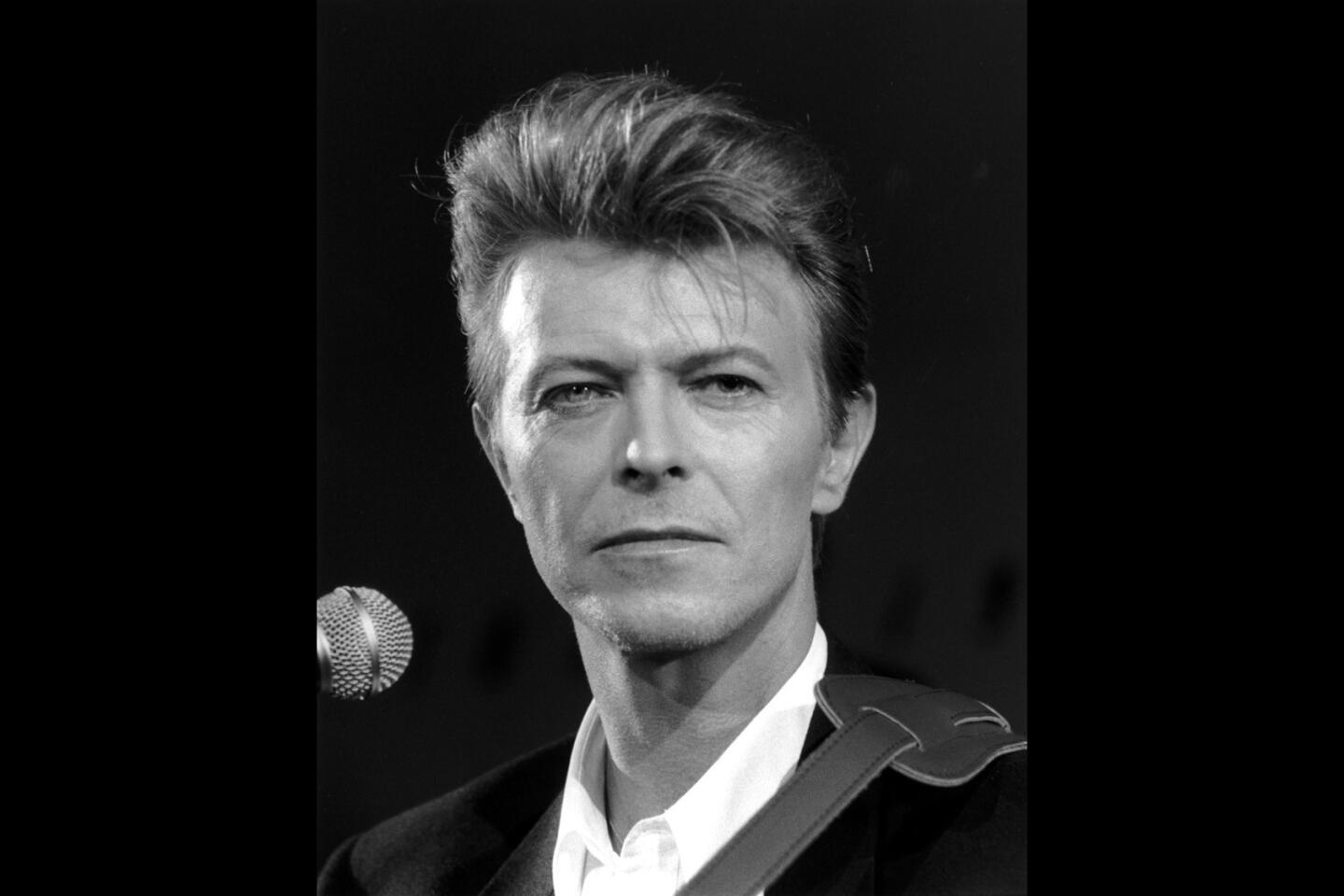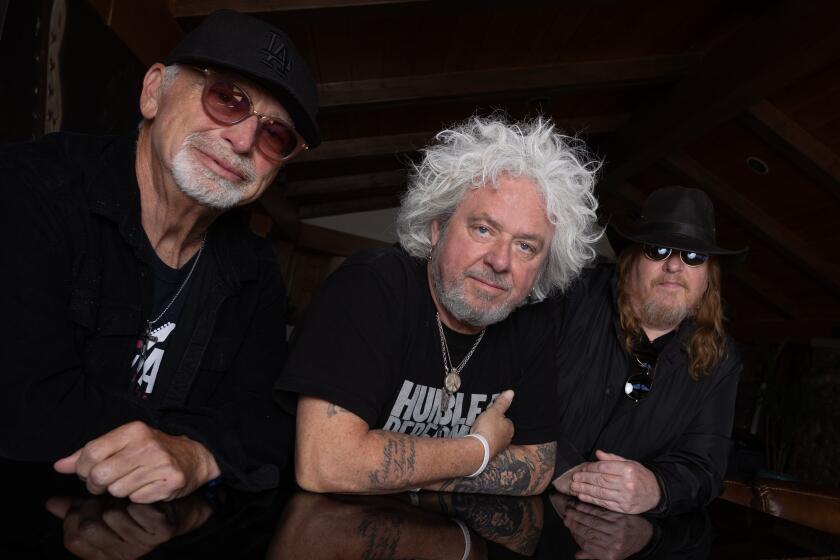David Bowie the icon is nothing without David Bowie the songwriter
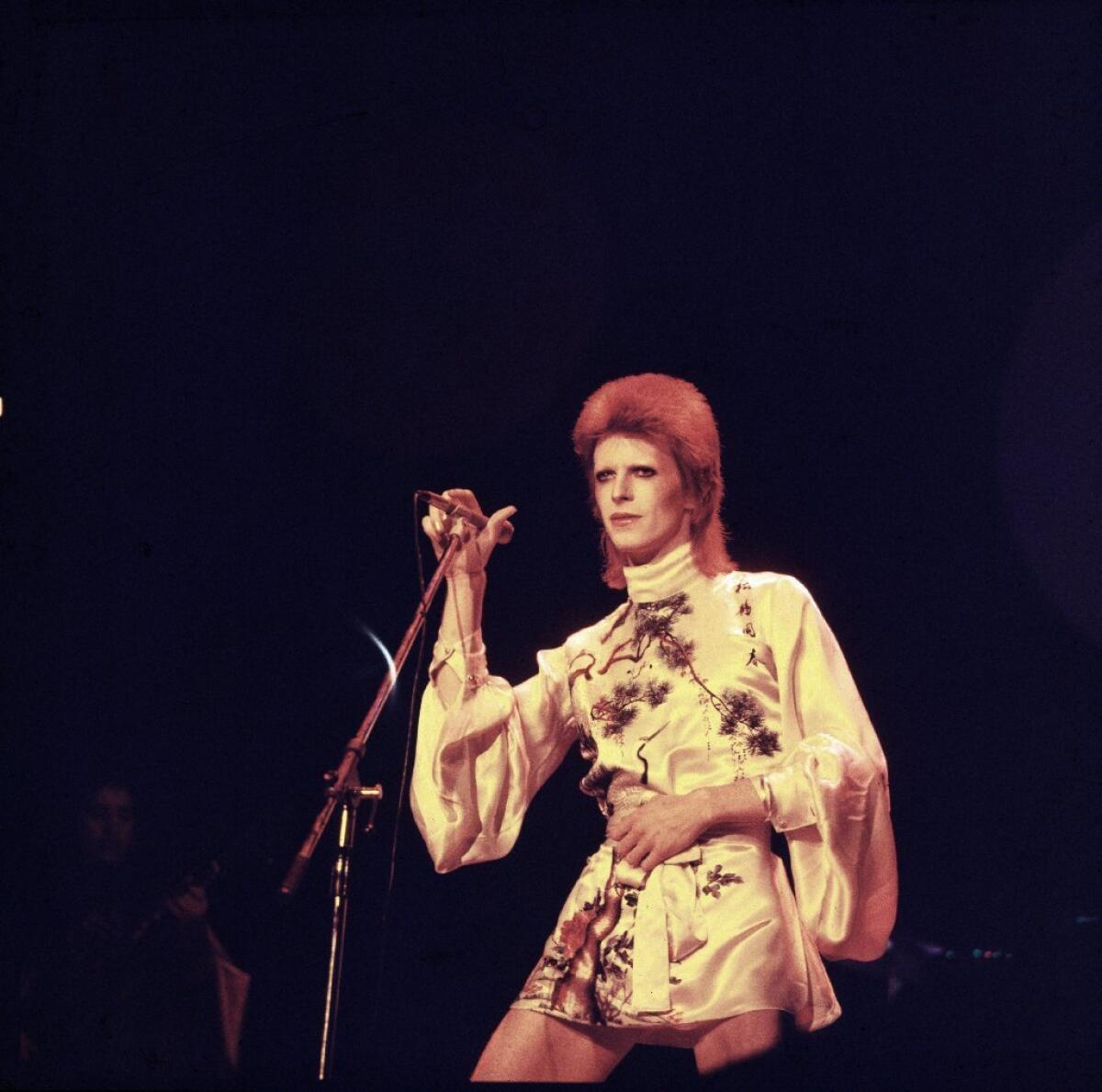
Among the many appreciations and celebrations likely published about David Bowie in coming days, readers will learn about his standing as a style icon, a groundbreaking avatar of sexual fluidity and a shape-shifting artist who expanded the possibilities in rock ‘n’ roll performance.
But Bowie the icon is nothing without Bowie the songwriter. Yes, in public, he played with image and identity in ways that will continue to influence generations. Nestled within these visual creations, though, rests the reason for his enduring fame: the music, and his skill as a lyrical storyteller.
“The dressing of a show is just a dressing. It’s a sort of perfunctory kind of thing,” Bowie told interviewer Russell Harty in 1975, a few years after Bowie had become a superstar as Ziggy Stardust. “But the content has to stand. I mean, you can dress a show with a trillion dollars -- or trillion pounds -- worth of goodies, but if the show is not substantial, there will be no impact.”
Pressed further, Bowie replied, “I know what songs I’m going to sing, which is the most important thing.”
Listen to his breakout hit, “Space Oddity,” and the sensation of travel to the outer limits remains sublimely cosmic. The work’s first lines, a radio transmission and countdown to blast-off, could be the opening lyrics of Bowie’s chapter one, his “Call me Ishmael.” It’s 1969. We’re going on a trip to the moon, and soon Our Hero will be floating in space.

Since the news of his death, fans of David Bowie have been stopping by the artist’s star on the Hollywood Walk of Fame to pay their respects to the rock legend.
The arc of his musical life ascended along with that rocket. Once aloft, Bowie transmitted universal songs about star men who communicated via FM radio waves, about humans longing to explore, and getting lost in the process. He penned works about isolation, self-reflection, the rush of enthusiasm that comes with new life and being “strung out in Heaven’s high, hitting an all time low.” As the years went on and his body gave way, he frequently addressed death and decay.
That essence, that uniquely Bowie-ian way with lyric and melody, wasn’t something that could be commoditized or compromised. But somehow these oblique songs hit on an international scale. “Ashes to Ashes” is about addiction and existential dread: “The shrieking of nothing is killing me” isn’t a line you’d expect near the top of the charts, yet there it was.
Many children of the 1990s first heard Bowie through Nirvana when the band performed “The Man Who Sold the World” on MTV Unplugged. When sung by a gravelly Kurt Cobain, himself struggling with addiction, the version felt like a portent. Conjuring a mysterious interaction in a stairway, Bowie’s words echoed with new meaning: “I thought you died alone, a long long time ago.”
Those odd turns of phrases, the way he snatched bits of strange dialogue and turned them into foundations, are what defined Bowie the lyricist. Every line acted as its own portal. Each was its own chapter in an ongoing saga. But they were sturdy enough to withstand reinvention.
Consider a scene from Wes Anderson’s “The Life Aquatic with Steve Zissou,” where Brazilian musician Seu Jorge serves as Greek chorus while covering Bowie’s songs. Stripped of Bowie’s glamour, his style and everything but a man singing about life on Mars and the importance of turning “to face the strange,” the simply rendered songs remain unsinkable.
Throughout his career, Bowie never professed to be an intellectual or begged for a podium. He was reluctant in front of a microphone when he wasn’t performing. But he did have a singular passion.

A timeline of David Bowie’s studio releases
“Do I worship anything? Life. I very much love life,” he told Harty in a 1973 interview.
Four decades later he suggested another passion during one of his final songs, from “Blackstar.”
“I’ve got drama, can’t be stolen,” he sang during “Lazarus.” It’s a song about being untethered, drifting away, of being lost but having nothing left to lose. It’s not hard to hear the voice of Major Tom when Bowie sings, “I’m so high it makes my brain whirl – dropped my cellphone down below.”
Follow me on Twitter: @liledit
MORE:
Full coverage: David Bowie’s life and career
David Bowie: A half-century of music
David Bowie: An unlikely hip-hop icon
David Bowie: That time the Thin White Duke needed reassurance
David Bowie: The Man Who Changed the (Music) World (1947-2016)
More to Read
The biggest entertainment stories
Get our big stories about Hollywood, film, television, music, arts, culture and more right in your inbox as soon as they publish.
You may occasionally receive promotional content from the Los Angeles Times.



